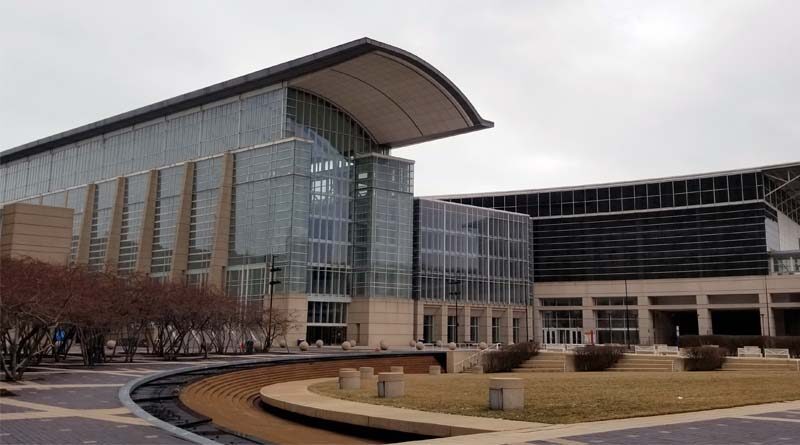McCormick Place Converts into Coronavirus Treatment Space
By Eric Althoff
GLEN ELLYN, Ill.—Alumni of the College of DuPage’s architecture school have briskly transformed the McCormick Place convention space into an ad hoc treatment facility for coronavirus patients. An announcement from the university, which is located in the western suburbs of Chicago, said that the work on the city’s convention center was completed in only two weeks due to the dedicated work of alumni as well as local assistance.
A fleet of hundreds of workers on the ground worked tirelessly on turning McCormick Place into a modern medical facility, with space to treat patients in some 2,250 individual rooms in the redesigned space.
Alumna Michelle Binet, who now works in Los Angeles for the global engineering firm AECOM, brought some of the design experience she has gleaned in her professional work to the project back in Illinois, where her alma mater is located. Binet prepared architectural drawings for the redesign of the convention space, as well as assisted with services including code reviews and managing accessibility for various areas of the building, including entry and exit cleaning rooms, staff lounges and medical locker rooms.
“My team and I, along with hundreds of others, including the Illinois National Guard and the Army Corps of Engineers, worked non-stop trying to get everything designed and constructed before the first wave of patients arrived,” Binot said in a news release from the university.
In addition, Binot’s team reconfigured meeting rooms inside the convention space so that support staff from the Chicago mayor’s office could be situated near a command center inside the new healthcare space.
The reconfigured convention center space was laid out in such a way that 3,000 beds would be available for treating covid-19 patients. The plans also entailed 500 “negative pressure” tents that keep air infected with coronavirus particles from escaping, as well as import clear air into the treatment rooms.
“Hopefully we won’t have to use all the beds and rooms available, but I’m glad to know we are helping patients who may need support,” Binot said. “I’ve never worked on a project quite like this. It has been incredibly rewarding to see a project come to fruition this quickly with the help of so many hardworking and passionate people.
Added architecture professor Mark Pearson: “We are very extremely proud of our Architecture alumni, like Michelle, who are using their professional expertise to make a difference in our communities and helping to support our healthcare system during this global crisis.”
“Let’s all do our part in flattening the curve and reduce [the] burden on the local healthcare systems,” Binot said.

